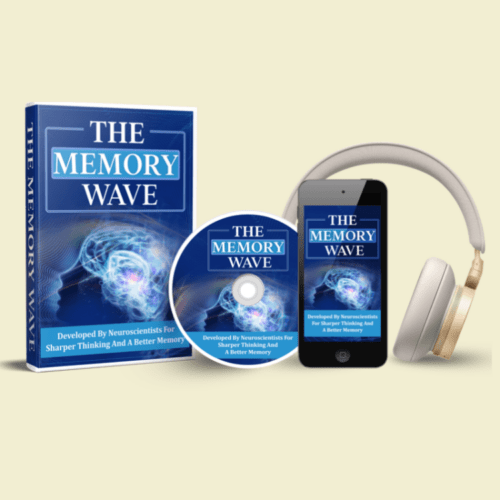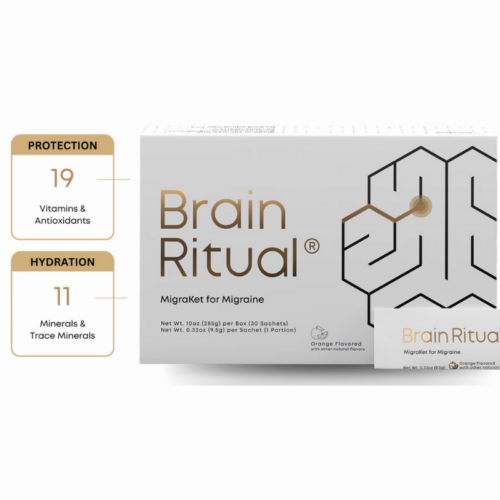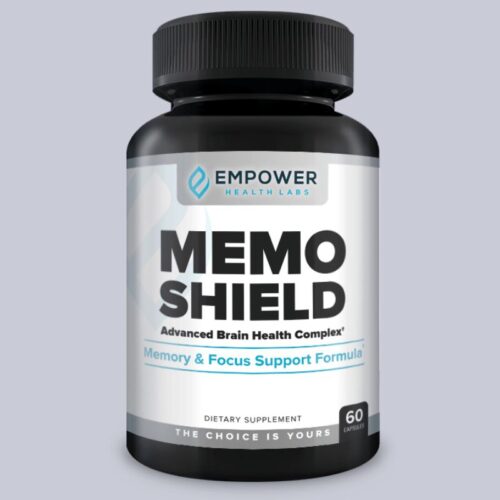Original price was: $79.00.$49.00Current price is: $49.00.
Mind Hero is marketed as a premium memory support supplement designed to help you stay sharp, focused, and mentally energized throughout the day. Its formula is said to combine natural brain-boosting ingredients to promote cognitive clarity, improve concentration, and support long-term memory health. Ideal for busy professionals, students, and anyone seeking mental performance support, Mind Hero aims to help you perform at your best—whether at work, school, or home. With its convenient capsule form, it’s easy to integrate into your daily routine. Choose Mind Hero for a friendly boost toward clearer thinking and sharper focus, supporting your wellness journey every day.
Description
At Meridian Medical Centre, we are committed to empowering our patients and readers with factual, science-backed health information. In recent years, our team has observed a concerning rise in deceptive online marketing tactics targeting vulnerable individuals—particularly in the realm of supplements and “miracle” health cures. One recent example is the so-called Mind Hero memory supplement, which has surfaced across various corners of the internet.
While its name suggests cognitive enhancement and memory support, our investigation revealed that Mind Hero is not a reputable health product, but rather part of a sophisticated online scam. This scheme combines false endorsements, misleading medical claims, and AI-generated content to exploit people’s trust and fears about memory loss, dementia, and Alzheimer’s disease.
In this article, we will explore how the scam operates, analyze its red flags, provide context on legitimate cognitive health approaches, and offer strategies to protect yourself from similar schemes. Our goal is not only to debunk misinformation but also to help readers make informed decisions that complement conventional healthcare with safe, evidence-based wellness practices.
Understanding the Mind Hero Scam
The Lure of a “Miracle” Recipe
The marketing hook for Mind Hero is a supposed “salmon recipe” that can reverse memory loss and even cure Alzheimer’s disease—a claim with no scientific backing. This bait is not intended to deliver nutritional advice, but rather to funnel readers toward purchasing a bottle of Mind Hero pills.
Fabricated Medical Endorsements
The product is allegedly endorsed by “Dr. Simmons,” whose identity is fabricated. The image used for this endorsement is actually of Dr. Paul Alan Cox, a well-known ethnobotanist, whose likeness has been misappropriated without permission.
Fake News Outlets and AI Content
The scam uses a counterfeit ABC News webpage (getmindhero.online) and AI-generated visuals and voiceovers to make the scheme appear credible. These AI tools create deepfake video and audio content, adding a layer of realism to the deception.
Red Flags on the Product Label
Simple spelling errors on the bottle—such as “memany” instead of “memory”—are a telltale sign of counterfeit or low-quality products. Legitimate supplements from reputable manufacturers are subject to stringent labeling requirements.
The “Money-Back Guarantee” That Isn’t
Like many scams, Mind Hero claims to offer a refund policy, but there are no real customer service channels to honor it. Victims report that once money is sent, there is no practical way to recover it.
Why This Matters for Health Consumers
Exploiting Vulnerability
Cognitive decline is a deeply personal and emotional topic. Families seeking solutions for loved ones with dementia or Alzheimer’s disease can be particularly vulnerable to persuasive marketing. Scammers exploit this vulnerability, promising impossible results.
The Risk of Harm
Even if the pills are inert, they can delay proper diagnosis and treatment. In other cases, undisclosed or unsafe ingredients may pose direct health risks.
Financial Loss and Data Risks
Beyond losing money, customers who purchase from such sites may unknowingly share sensitive personal and financial information with bad actors.
Evidence-Based Approaches to Cognitive Wellness
As a wellness-focused medical centre, we believe in a balanced approach—integrating natural health strategies with conventional medical care, and never substituting one for the other. While there is no miracle cure for dementia or Alzheimer’s, research supports several science-backed practices for promoting cognitive health.
Nutrition for Brain Health
-
Omega-3 Fatty Acids: Found in fatty fish such as salmon, sardines, and mackerel, these support brain structure and function.
-
Antioxidant-Rich Foods: Berries, leafy greens, and nuts may help combat oxidative stress linked to cognitive decline.
-
Mediterranean Diet: Associated with lower rates of cognitive impairment.
Physical Activity
Regular aerobic exercise improves blood flow to the brain, supports neuroplasticity, and reduces the risk of age-related cognitive decline.
Cognitive Engagement
Activities such as learning new skills, reading, playing musical instruments, or solving puzzles can help maintain mental sharpness.
Quality Sleep
Poor sleep has been linked to memory impairment and neurodegeneration. Good sleep hygiene is essential for brain health.
Managing Cardiovascular Risk Factors
Conditions like hypertension, diabetes, and high cholesterol can impact brain health. Managing these through lifestyle changes and medical care can be protective.
How to Spot and Avoid Supplement Scams
1. Investigate the Claims
Extraordinary health claims—such as reversing Alzheimer’s—should be met with skepticism. Search for peer-reviewed studies and verify whether any credible medical organization supports the product.
2. Check the Source
Look for official domains and cross-check whether a legitimate news site actually published the referenced article.
3. Verify the Endorsements
If a medical professional is cited, confirm their credentials through reliable directories and ensure their image and name have not been misused.
4. Examine the Label
Errors in spelling, missing ingredient lists, or lack of manufacturing details are immediate red flags.
5. Look for Transparency in Manufacturing
Reputable supplements often provide third-party testing results and list manufacturing standards such as GMP (Good Manufacturing Practice) compliance.
6. Use Trusted Purchasing Channels
Avoid buying supplements from links in unsolicited emails or unfamiliar social media ads. Stick to well-known pharmacies or established health product retailers.
The Role of AI in Modern Scams
The Mind Hero case illustrates a growing challenge: scammers are now using artificial intelligence to create convincing fake videos, news articles, and even realistic voices. This makes detecting fraud harder for the average consumer.
While AI can be a powerful tool for legitimate health education—as we at Meridian Medical Centre use it for content research and patient communication—it also requires vigilance to ensure that information is coming from credible, verifiable sources.
A Balanced Approach to Supplement Use
Supplements can play a valuable role in wellness when they are:
-
Based on scientific evidence
-
Manufactured by reputable companies
-
Used as part of an overall health plan in consultation with a healthcare provider
However, they should never replace prescribed medical treatments, especially for serious conditions such as Alzheimer’s disease. Natural approaches—like diet, exercise, and cognitive engagement—are best used as complementary strategies, not as cures.
Final Thoughts
The Mind Hero supplement is a clear example of why ethical, evidence-based healthcare communication is essential. False hope, fake science, and fabricated endorsements not only harm individuals financially but also put their health at risk by distracting from proven treatment options.
At Meridian Medical Centre, our mission is to help patients integrate safe, natural wellness strategies with conventional medical care—rooted in transparency, research, and compassion. If you or a loved one is considering any memory support supplement, we strongly encourage discussing it with a qualified healthcare provider first.
By staying informed, critically evaluating claims, and seeking professional guidance, you can protect both your health and your trust from being exploited by deceptive marketing.




